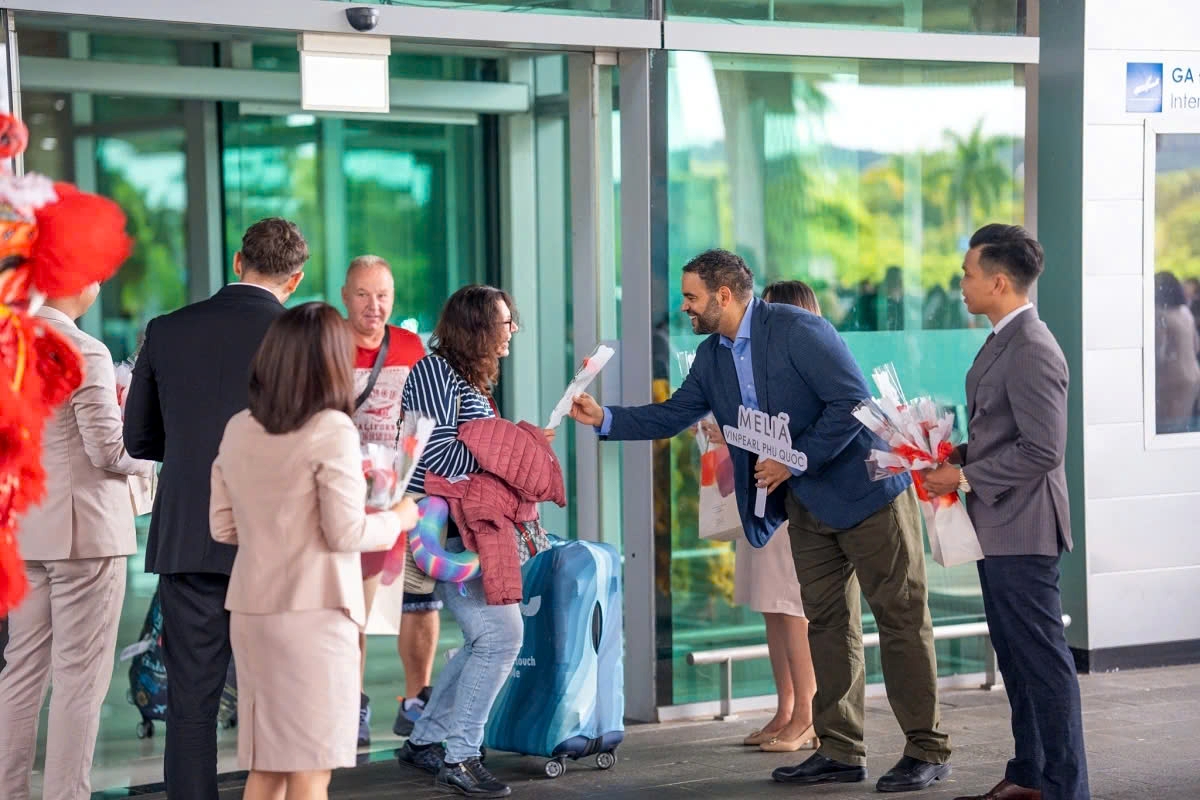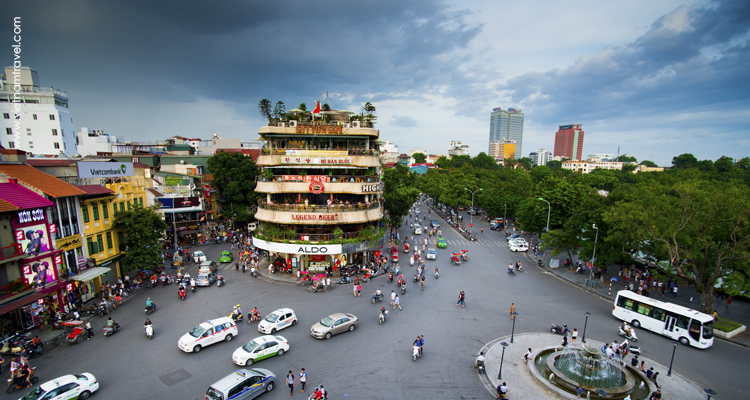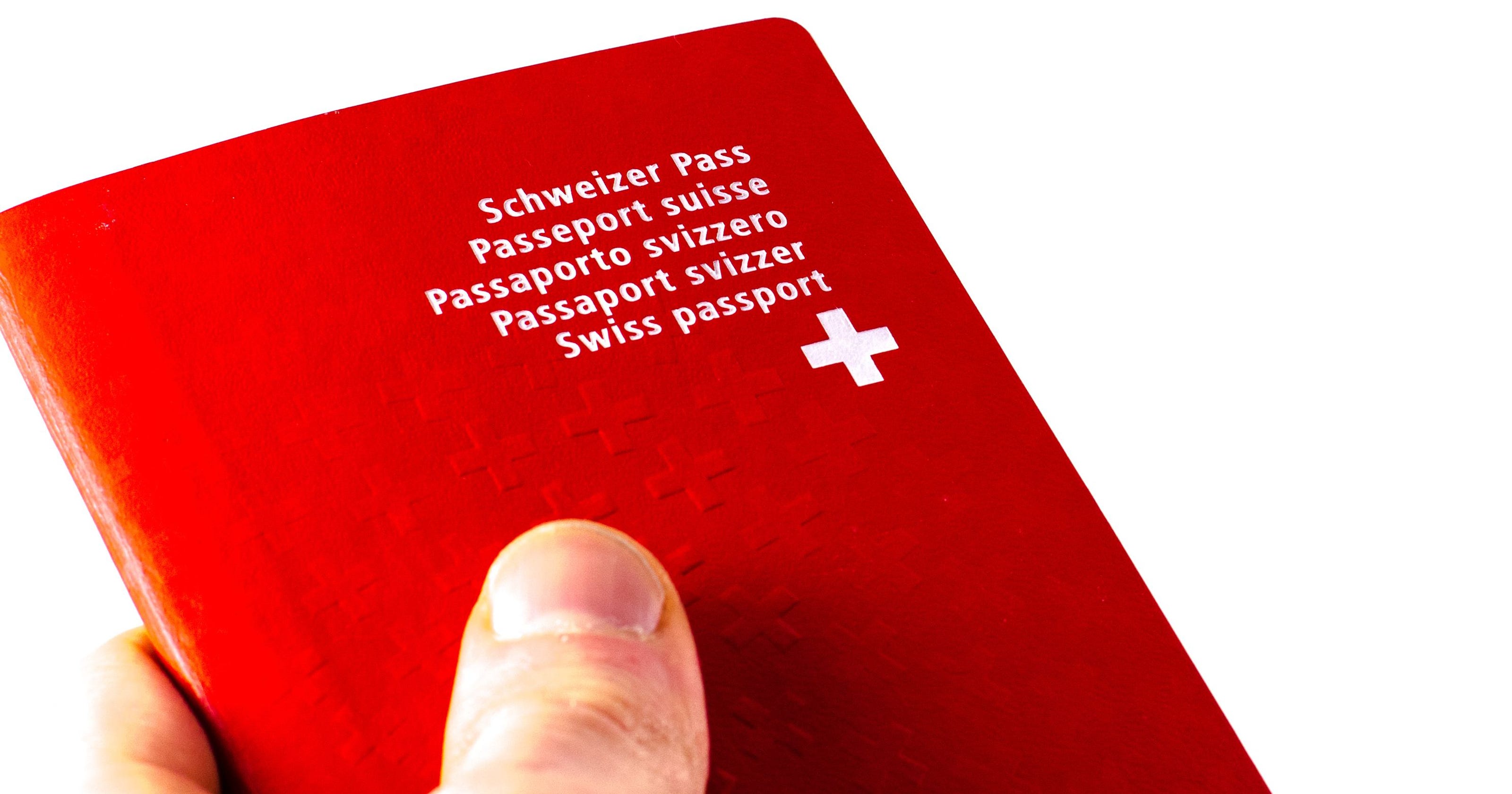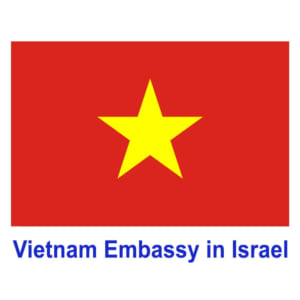
Vietnam Visa Fails- Top 5 Visa Mistakes by Swiss Travelers
This article delves into the Top 5 Visa Mistakes by Swiss Travelers Entering Vietnam. Navigating visa regulations for Vietnam can be tricky, and this guide aims to equip Swiss citizens with the necessary information to avoid common pitfalls and ensure a smooth and trouble-free entry into the country.
Introduction: Understanding Visa Requirements for Swiss Travelers to Vietnam

Understanding the visa requirements for Vietnam is crucial for Swiss travelers planning a visit. Vietnam has specific regulations concerning who needs a visa, the different types of visas available, and the application procedures. Failing to comply with these regulations can result in denied entry, delays, and unnecessary stress, ultimately ruining your trip. While Vietnam offers visa exemptions for citizens of certain countries for specific durations, Swiss citizens generally require a visa to enter Vietnam. This section will provide a general overview of what Swiss travelers need to know before starting their visa application.
The Importance of Pre-Travel Visa Research for Swiss Citizens
Before booking flights or making travel arrangements, Swiss travelers should first research the visa requirements. This includes determining the appropriate visa type based on the purpose of the visit (tourism, business, study, etc.) and the intended length of stay. It’s vital to check the latest official visa policies and procedures on the website of the Vietnamese Embassy in Switzerland or the Vietnamese Immigration Department. Information found on unofficial websites might be outdated or inaccurate. Proactive research can save you from unpleasant surprises at the airport or border. Considering the complexities involved, engaging with a reputable visa agency can provide personalized guidance and help ensure a smooth application process. They can clarify any confusion, address specific concerns, and handle the application on your behalf, saving you time and effort.
Types of Visas Available to Swiss Travelers
Vietnam offers various types of visas to cater to different purposes of visit. For Swiss citizens, the most common types are tourist visas (DL) and business visas (DN). Tourist visas are intended for leisure travel, while business visas are required for activities such as attending conferences, meeting with partners, or conducting market research. The validity period of these visas can range from one month to a year, with options for single or multiple entries. Selecting the correct visa type is essential, and using a tourist visa for business activities or vice versa can lead to serious consequences, including deportation. Depending on the individual’s circumstances, there might also be visas available for students, work permits, or diplomatic purposes. It is therefore imperative to carefully consider your travel reasons and select the corresponding visa category.
Where to Apply for a Vietnamese Visa in Switzerland
Swiss citizens can apply for a Vietnamese visa through several channels. The most traditional way is to apply directly at the Vietnamese Embassy in Bern. This involves filling out an application form, providing supporting documents, and attending an interview if required. Alternatively, travelers can apply for an e-visa online through the official website of the Vietnamese Immigration Department. The e-visa is a convenient option for short stays, allowing you to obtain your visa electronically before your departure. A third option is to use a visa on arrival (VOA) service, which allows you to obtain a visa upon arrival at an international airport in Vietnam. However, this method requires pre-approval and is typically handled by a visa agency. Always verify that you are using official government websites or reputable agencies to avoid scams and misinformation. Each application method has its own requirements, processing times, and fees. Carefully evaluate these factors to choose the option that best suits your needs.
Mistake #1: Incorrect Visa Type Selection for Your Travel Purpose

One of the most common mistakes Swiss travelers make when applying for a Vietnamese visa is selecting the wrong visa type for their intended purpose of visit. Using a tourist visa for business activities, or vice versa, can lead to serious complications, including denied entry, fines, and even deportation. Understanding the distinctions between different visa types and choosing the correct one is essential.
Distinguishing Between Tourist and Business Visas
The primary difference between a tourist visa and a business visa lies in the activities you are permitted to undertake while in Vietnam. A tourist visa (DL) is specifically designed for recreational travel and tourism-related activities, such as sightseeing, visiting attractions, and leisure pursuits. Engaging in any form of business activity, including attending meetings, negotiating contracts, or conducting market research, is strictly prohibited under a tourist visa. On the other hand, a business visa (DN) is intended for individuals traveling to Vietnam for business purposes. Holding a business visa allows you to participate in conferences, conduct business negotiations, meet with partners, and perform other business-related activities. The distinction is crucial, and failure to adhere to these specific guidelines can lead to negative consequences.
Consequences of Using the Wrong Visa Type
Using the wrong visa type can have significant repercussions. If you enter Vietnam on a tourist visa but engage in business activities, you risk being fined, detained, or even deported. Vietnamese immigration authorities take visa violations seriously, and the penalties can be severe. Your actions could also affect your future ability to obtain a Vietnamese visa. In addition to legal consequences, using the wrong visa type can also create practical difficulties. For example, you may not be able to open a bank account or enter into contracts without a valid business visa. It’s always better to err on the side of caution and ensure that you have the correct visa for your intended activities.
How to Determine the Correct Visa Type
Determining the correct visa type for your trip to Vietnam requires careful consideration of your travel itinerary and intended activities. If you are traveling purely for leisure and plan to engage only in tourism-related activities, a tourist visa is appropriate. However, if you intend to conduct any business-related activities, such as attending conferences, meeting with business partners, or negotiating contracts, you will need a business visa. If you are unsure about which visa type is appropriate for your situation, it is best to consult with the Vietnamese Embassy or Consulate in Switzerland. They can provide specific guidance based on your individual circumstances. Additionally, you can seek advice from a reputable visa agency that specializes in Vietnamese visa applications. Remember to be transparent about your intentions when applying for a visa to avoid any misunderstandings or complications.
Mistake #2: Applying Too Late: Insufficient Processing Time for Visa Approval

Another common mistake made by Swiss travelers when seeking a Vietnamese visa is not allowing sufficient processing time. Visa applications can take time to process, and delays can occur due to various reasons, such as high application volumes or incomplete documentation. Applying too close to your travel date increases the risk of not receiving your visa in time, potentially leading to missed flights and disrupted travel plans.
Understanding Standard Visa Processing Times
The processing time for a Vietnamese visa can vary depending on the type of visa, the application method (e-visa, embassy application, VOA), and the current workload of the issuing authority. Generally, e-visas take around three business days to process, while applications submitted through the embassy may take longer, typically between five to ten business days. Visa on arrival applications also require pre-approval, which can take several days to process. It’s important to note that these are just estimates, and actual processing times can vary. Public holidays and peak travel seasons can also lead to delays. It’s therefore recommended to start the application process well in advance of your intended travel date to allow for any unexpected delays.
The Risks of Last-Minute Applications
Applying for a visa at the last minute is a risky undertaking. If your visa is not approved in time, you may have to postpone or cancel your trip, resulting in financial losses from non-refundable flights and accommodation bookings. Last-minute applications also leave you with little room to correct any errors in your application or provide additional documentation if required. Furthermore, rushing the application process can increase the likelihood of making mistakes, which can further delay the approval process. To avoid these risks, it’s essential to plan ahead and start your visa application well in advance of your departure date.
Recommended Application Timeline for Swiss Nationals
To ensure a smooth visa application process, Swiss nationals should aim to apply for their Vietnamese visa at least one month before their intended travel date. This allows ample time for processing, as well as any potential delays or additional requirements. For e-visas, applying at least two weeks in advance is generally sufficient, while embassy applications require more lead time. It’s always best to check the specific processing times and requirements outlined by the Vietnamese Embassy or Consulate in Switzerland. Keep in mind that during peak travel season (e.g., Tet holiday, Christmas, summer vacations), processing times may be longer due to increased demand.
Expedited Visa Options and When to Consider Them
In some cases, expedited visa services may be available for travelers who need to obtain a visa urgently. These services typically involve paying an additional fee to prioritize your application and reduce the processing time. However, expedited services are not always guaranteed, and approval still depends on the individual circumstances and the discretion of the visa-issuing authority. If you find yourself in a situation where you need a visa urgently, it’s best to contact the Vietnamese Embassy or a reputable visa agency to inquire about expedited options. However, you should also be prepared for the possibility that expedited processing may not be available or that your application may still be subject to delays.
Mistake #3: Providing Inaccurate or Incomplete Information on Your Visa Application
Providing inaccurate or incomplete information on your Vietnamese visa application is another common error that can lead to delays, rejection, or even denial of entry. Immigration authorities rely on the information provided on the application to assess your eligibility for a visa, and any discrepancies or omissions can raise red flags and undermine your credibility.
Common Errors to Avoid When Completing the Application Form
Several common errors can creep into the visa application form if you’re not careful. These include: incorrect passport details (number, expiration date), misspelled names, inaccurate dates of birth, false statements about your travel history, and providing an invalid or non-existent address in Vietnam. Overlooking the smallest field can have bigger consequences than you realize. Inconsistent information across different fields can also raise suspicion. For example, if your stated occupation doesn’t align with your travel purpose, this could lead to further scrutiny. Always double-check your application form before submitting it, and ensure that all information is accurate, consistent, and complete.
The Importance of Accurate Passport Information
Passport information is critical when applying for a Vietnamese visa. Your passport must be valid for at least six months beyond your intended stay in Vietnam and should have at least two blank pages for visa stamps. Ensure that the passport number, full name, date of birth, and other details match exactly the information you provide on your visa application form. Any discrepancies can result in your application being rejected. If your passport is due to expire soon, it’s best to renew it before applying for a visa. Additionally, make sure to provide a clear and legible copy of your passport’s biographical page. Inaccurate or illegible passport copies can also cause delays or rejection.
Supporting Documents: What You Need and How to Prepare Them
In addition to the application form, you will need to provide supporting documents to demonstrate your eligibility for a Vietnamese visa. The specific documents required may vary depending on the type of visa you are applying for, but generally include a passport-sized photo, a confirmed flight itinerary, a hotel booking confirmation, and proof of sufficient funds to cover your expenses during your stay. For business visas, you may also need to provide a letter of invitation from a Vietnamese company or organization, as well as copies of your business registration documents. All supporting documents must be genuine, up-to-date, and translated into English or Vietnamese if they are in another language. Make sure to provide clear and legible copies of all documents. Organizing them logically can significantly expedite the review process.
Verifying Your Application Before Submission
Before submitting your visa application, take the time to carefully review all the information you have provided and ensure that it is accurate, complete, and consistent. Double-check all dates, names, and passport details. Verify that all supporting documents are included and meet the required specifications. If possible, ask a friend or family member to review your application as well. Having a fresh pair of eyes can help you catch any errors or omissions that you may have missed. Once you are satisfied that your application is complete and accurate, you can submit it to the Vietnamese Embassy or through the online e-visa portal. Remember, taking the time to verify your application before submission can save you from potential delays and complications down the road.
Mistake #4: Overlooking Visa Expiration Dates and Permitted Duration of Stay
A seemingly straightforward yet surprisingly frequent mistake is overlooking the visa expiration date and the permitted duration of stay. Many travelers mistakenly assume that their visa is valid for the entire duration of their trip, without paying close attention to the specific validity period and the number of days they are allowed to stay in Vietnam. Overstaying your visa, even by a single day, can lead to serious consequences, including fines, detention, and deportation.
Understanding Visa Validity vs. Duration of Stay
It’s crucial to understand the difference between visa validity and duration of stay. Visa validity refers to the period during which you are allowed to enter Vietnam using that particular visa. The duration of stay is the number of days you are permitted to remain in Vietnam after your arrival. For example, a visa may be valid for three months from the date of issue, but may only allow you to stay for 30 days within that three-month period. Pay close attention to both dates indicated on your visa sticker or e-visa document. Exceeding either the validity period or the permitted duration of stay is considered a visa violation.
Consequences of Overstaying Your Visa
Overstaying your Vietnamese visa, even unintentionally, can have severe repercussions. You may be subject to fines, detention, and deportation. In some cases, you may also be banned from re-entering Vietnam in the future. The severity of the penalties often depends on the length of the overstay. A short overstay (e.g., a few days) may result in a fine, while a longer overstay (e.g., several weeks or months) can lead to more serious consequences. Immigration officials are strict about enforcing visa regulations, and there is little leniency for those who overstay their visas. Therefore, it’s essential to keep track of your visa validity and duration of stay and ensure that you depart Vietnam before your visa expires.
Tips for Tracking Your Visa Validity and Stay Duration
To avoid overstaying your visa, it’s important to keep track of your visa validity and permitted duration of stay. One simple method is to mark these dates on your calendar or set reminders on your phone. You can also make a copy of your visa sticker or e-visa document and store it in a safe place. When entering Vietnam, pay close attention to the entry stamp placed in your passport by the immigration officer. The entry stamp indicates the date of entry and the date by which you must depart Vietnam. If you are unsure about the validity of your visa or the permitted duration of stay, it’s best to contact the Vietnamese immigration authorities or a reputable visa agency for clarification.
Options for Extending Your Visa (and When It’s Possible)
If you wish to extend your stay in Vietnam beyond the permitted duration, you may be able to apply for a visa extension. However, visa extensions are not always granted, and the eligibility criteria can be strict. Extensions are generally only granted under exceptional circumstances, such as medical emergencies or unforeseen events that prevent you from leaving the country on time. The process for applying for a visa extension involves submitting an application to the Vietnamese immigration authorities, along with supporting documentation explaining the reasons for your request. It’s essential to apply for a visa extension well in advance of your visa expiration date. Applying too close to the expiration date may increase the risk of your application being rejected. Also, avoid overstaying and THEN applying for an extension. That is a major red flag. Consult with a visa agency for the most updated extension policies as they tend to change.
Mistake #5: Entering Vietnam Without a Valid Visa or Approval Letter
Perhaps the most egregious of all visa mistakes is attempting to enter Vietnam without a valid visa or visa approval letter. While this may seem self-evident, it’s surprising how many travelers, often due to misinformation or misunderstanding of the visa requirements, attempt to enter Vietnam without the necessary documentation. This is a surefire way to be denied entry and potentially face further complications.
Common Scenarios Leading to Entry Refusal
Several scenarios can lead to travelers attempting to enter Vietnam without a valid visa. One common scenario is travelers who believe they are eligible for visa exemptions but do not meet the specific criteria (e.g., incorrect nationality, length of stay exceeding the exemption period). Another common scenario is travelers who are relying on outdated or inaccurate information about visa requirements found on unofficial websites or forums. Some travelers may also mistakenly believe that they can obtain a visa upon arrival without prior approval or a valid visa approval letter, when this is not always the case. Attempting to enter Vietnam without the proper documentation will invariably result in denied entry and potential deportation back to your point of origin.
The Importance of a Visa Approval Letter for Visa on Arrival (VOA)
If you are planning to obtain a visa on arrival (VOA) in Vietnam, it’s crucial to understand that you cannot simply show up at the airport and expect to receive a visa. You must obtain a visa approval letter beforehand from a reputable visa agency. The visa approval letter is essentially pre-approval from the Vietnamese immigration authorities allowing you to receive a visa upon arrival at an international airport in Vietnam. Without a valid visa approval letter, you will be denied boarding at your departure airport or refused entry upon arrival in Vietnam. The process of obtaining a visa approval letter typically involves submitting an application and supporting documents to a visa agency, who will then forward your application to the Vietnamese immigration authorities for approval. Once approved, you will receive a visa approval letter via email, which you must present to the immigration officer upon arrival in Vietnam, along with your passport, photos, and visa stamping fee.
Alternative Entry Methods Might not Exist.
The days of negotiating entry at the airport counter are long gone. Vietnam’s immigration system is more digitized and less flexible than in prior decades, and bribes are generally not expected or accepted. Do not attempt to enter the country unlawfully. The penalties are severe, and the risk of being caught far outweighs any potential benefit. The alternative entry methods once whispered about in travel forums simply don’t exist anymore. The official channels are now the only viable routes.
Double-Checking Your Documents Before Departure
Before heading to the airport, it’s crucial to double-check that you have all the necessary documents for your trip, including your passport, visa (or visa approval letter), flight itinerary, and hotel booking confirmation. Ensuring you have these documents readily available will ensure a smooth check-in at the airport and avoid any last-minute panics. You should also make copies of your important documents and store them separately from the originals in case of loss or theft. Consider storing digital copies in a secure cloud storage as well.
Consequences of Visa Mistakes and How to Avoid Them
Visa mistakes can have serious consequences, ranging from denied entry and fines to detention and deportation. Avoiding these mistakes requires careful planning, diligent research, and meticulous attention to detail. By understanding the common pitfalls and taking proactive steps to avoid them, Swiss travelers can ensure a smooth and trouble-free entry into Vietnam.
Legal Repercussions of Visa Violations
Visa violations, such as overstaying your visa or engaging in activities not permitted by your visa type, can have significant legal repercussions. You may be subject to fines, detention, and deportation. In some cases, you may also be banned from re-entering Vietnam in the future. The severity of the penalties often depends on the nature and duration of the violation. Immigration authorities take visa violations seriously, and there is little leniency for those who break the rules. Therefore, it’s essential to comply with all visa regulations and ensure that you have the correct visa for your intended activities.
Financial Costs Associated with Visa Errors
In addition to legal repercussions, visa errors can also lead to significant financial costs. If you are denied entry into Vietnam due to a visa problem, you may lose money on non-refundable flights, accommodation bookings, and other travel expenses. You may also incur additional costs for return flights, new visa applications, and legal assistance. The financial burden of visa errors can be substantial, especially if you are traveling on a tight budget. To avoid these costs, it’s essential to plan your visa application carefully, double-check all your information, and seek professional advice if needed.
Impact on Future Travel to Vietnam
Making visa mistakes can also impact your future ability to travel to Vietnam. If you have a history of visa violations, you may find it more difficult to obtain a visa in the future. Your application may be subject to greater scrutiny, and you may be required to provide additional documentation to prove your eligibility. In some cases, you may even be banned from re-entering Vietnam altogether. To protect your future travel prospects, it’s essential to avoid visa mistakes and comply with all immigration regulations.
Proactive Steps to Ensure a Smooth Visa Process
To ensure a smooth visa process and avoid potential problems, Swiss travelers should take the following proactive steps:
- Start Early: Begin the visa application process well in advance of your intended travel date to allow ample time for processing and any unexpected delays.
- Research Thoroughly: Research the visa requirements carefully and ensure that you understand the different types of visas available and the specific criteria for each type.
- Provide Accurate Information: Provide accurate and complete information on your visa application and supporting documents. Double-check all details before submitting your application.
- Seek Professional Advice: If you are unsure about any aspect of the visa application process, seek advice from the Vietnamese Embassy or a reputable visa agency.
- Track Your Visa Validity and Stay Duration: Keep track of your visa validity and permitted duration of stay and ensure that you depart Vietnam before your visa expires.
Conclusion: Ensuring a Smooth Entry into Vietnam for Swiss Citizens
In conclusion, successfully navigating the Vietnamese visa process as a Swiss traveler requires careful planning, meticulous attention to detail, and a thorough understanding of the visa requirements. By avoiding the Top 5 Visa Mistakes by Swiss Travelers Entering Vietnam – selecting the incorrect visa type, applying too late, providing inaccurate information, overlooking expiration dates, and attempting entry without a valid visa – Swiss citizens can significantly increase their chances of a smooth and enjoyable trip. Remember to research visa options, apply well in advance, double-check all details, track your visa validity, and always enter with the correct documentation. Adhering to these guidelines will help ensure a positive experience.

